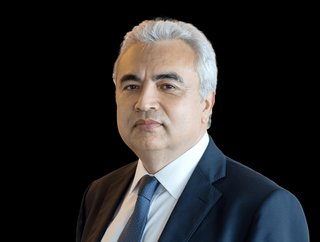Lifetime of Achievement: Fatih Birol

Many of us couldn’t imagine being at the helm of a global energy institution as a critical decision-maker at this time. Nevertheless, the International Energy Agency (IEA) continues to support the greatest industrial transition of our time with the Executive Director Dr Fatih Birol influencing major evolution across the industry.
Born in 1958 as a Turkish citizen in the country’s capital Ankara, Birol studied a Bachelor’s of Science in Power Engineering at the Istanbul Technical University. Later he also achieved a Master’s and PhD in Energy Economics from the Technical University of Vienna, which was where his first job role was formed.
2013 marked the recognition of his dedication to study as Birol was awarded a Doctorate of Science honoris causa by Imperial College London.
During this time, he has been recognised by a number of countries for his excellence in the form of honours and medals. In January 2022, he was awarded the Chevalier of the Legion of Honour in France, adding to many other honours from across the globe, including countries like Turkey, Austria, Germany, Italy, and Sweden.
Birol comes from humble beginnings as a dedicated Junior Analyst with the Organization of the Petroleum Exporting Countries (OPEC) based in Vienna. The following years saw him enter the IEA and climb the ladder to a Chief Economist role, which put him in charge of its World Energy Outlook report.
In 2015, his tenure as Executive Director began, consisting of an incredible journey of industry influence to this day.
Responsibility for climate change and the energy transition
Birol’s climate advocacy and commitment can be seen across the industry, but he often shares his thoughts on the direction of the global energy sector via the IEA’s website—sharing analysis of new developments, global news, major events, and opportunities across all facets.
Birol is a strong believer of decarbonisation that coincides with economic prosperity. While this is a key part of his role, as an economist himself he understands the relationship between the two and looks to drive a coalition between business and the planet.
In an article published by the IEA, he talks of world recovery that aligns the economy with sustainability.
“Let me be clear, economic growth coupled with decarbonisation is not only realistic, it has already been happening,” says Birol. “Last month, IEA data showed that global energy-related carbon emissions stopped growing in 2019 even as the world economy expanded by nearly 3%. A key part of this encouraging development was the decline in emissions from the electricity sector across advanced economies, indicating that clean energy transitions are moving forwards.”
It’s safe to say that the climate crisis, and in fact all crises, has a profound effect on Birol and is further motivation to continue building an energy that is suitable for the future. Part of this work is to understand the energy landscape and ensure full transparency of the industry and the sentiments of the powers within it. Birol recognises the challenges vary between continents as energy equity is yet to come to fruition in some underserved areas.
“Although some of the biggest disruptions have been felt in Europe and made a lot of the headlines, major impacts are being felt in many emerging and developing economies. For example, we see this clearly in the number of people worldwide who lack access to electricity, the large majority of whom live in Sub-Saharan Africa. This number rose last year for the first time in decades as energy prices spiked amid the crisis.”
As the Executive Director, Birol prides himself on bringing clarity and reassurance to the industry that it takes on the climate challenge with the full support from the IEA. With many countries realising the demand for their own energy strategies, they can focus on delivering renewable systems.







